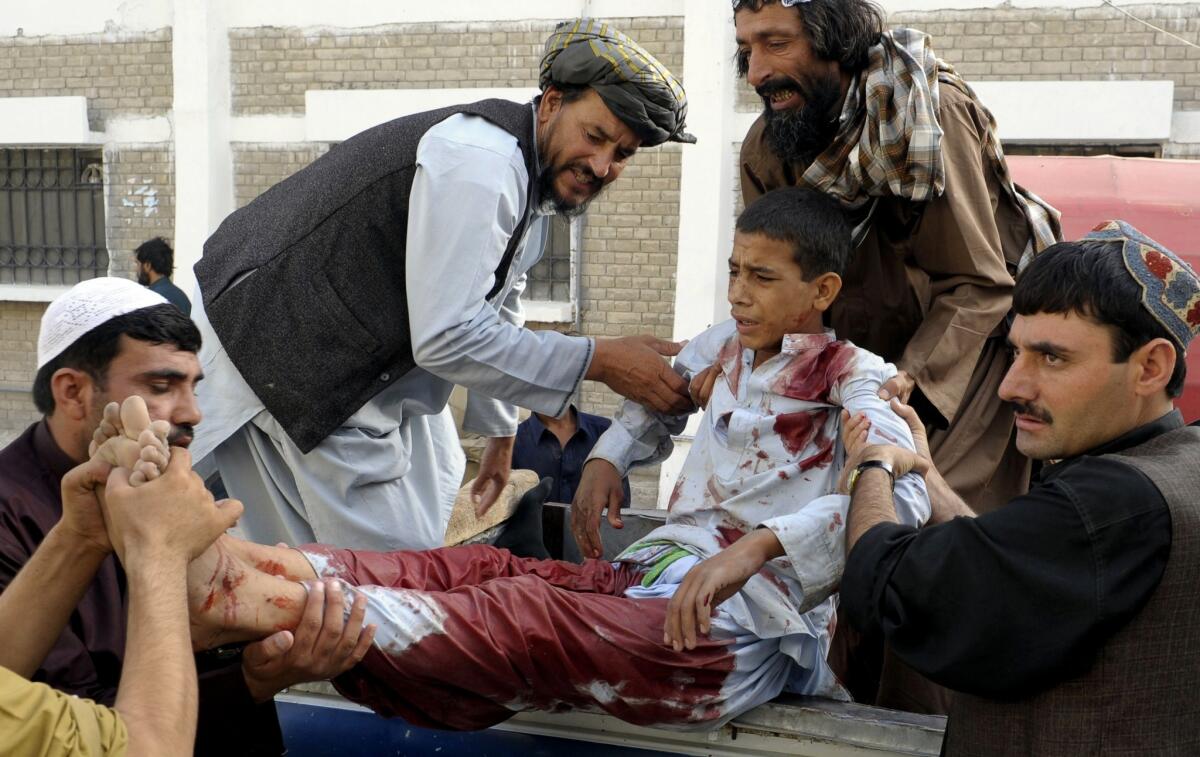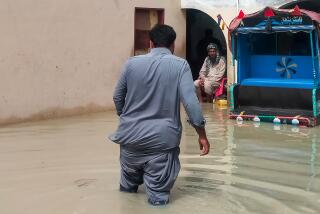At least 10 killed, dozens injured in attack outside Pakistan mosque

ISLAMABAD, Pakistan -- Gunmen on Friday killed at least 10 people and wounded 30 outside a mosque in Quetta, the capital of Pakistan’s western Baluchistan province, in the second attack in that city in two days, local media reported.
The violence is part of a spate of attacks nationwide that appear aimed at intimidating the government of Prime Minister Nawaz Sharif, who was elected in May on a campaign pledge to bolster internal security.
The State Department said Thursday it had ordered the evacuation of non-essential staff from the U.S. Consulate in the eastern Pakistani city of Lahore in response to specific threats. It advised Americans to avoid traveling to the nation.
It was not immediately clear whether the danger facing the consulate was linked to a broader advisory about a possible Al Qaeda attack, which prompted Washington to temporarily close more than 20 diplomatic facilities in Africa and the Middle East.
The target of Friday’s attack was allegedly Ali Madad Jatak, a former provincial minister, who escaped unharmed as he emerged from Friday prayers at Quetta’s Jamia Farooqia mosque.
Local television footage showed blood on the stairs leading to the mosque as crime investigators searched for evidence, and a young man traditionally attired in a white shalwar kameez placed the body of his elderly relative in an open vehicle.
No group has taken immediate responsibility.
The attack followed a suicide bombing by the Pakistan Taliban on Thursday that killed 30 people at a police funeral in Quetta, a hub for Islamic militants, sectarian and separatist insurgents.
Analysts said they believe the recent jump in attacks reflect attempts by militants to intimidate the government and prevent it from adopting a concerted strategy against extremism.
Militants also are angered at the planned execution later this month of four condemned prisoners, they added, including two members of a banned sectarian group, Lashkar-e-Jhangvi, ending a five-year moratorium on executions.
“Over the last few months, these attacks seem to be well coordinated,” said Zahid Hussain, an Islamabad-based security analyst. “There’s a nexus operating, you can’t say they’re in isolation.”
Sharif’s government has so far failed to act on his pledge to fight terrorism.
Late Thursday, however, following the Quetta suicide bombing in which 21 police officers were killed, Sharif ordered Pakistan’s Interior Ministry to present a counter-terrorism strategy by Tuesday.
“I think he’s realized, enough is enough,” said Nasim Zehra, an Islamabad-based analyst. “They haven’t been on a war footing or been pro-active. Up to this point, there’s only been an ad hoc response to the increased threats, deaths and bomb blasts.”
Analysts said that all too often, in the absence of a concerted approach, Pakistani police have been left to fight militancy on their own.
“Police remain the unsung heroes,” Zehra added. “Some have been killed, their houses bombed, their spine crippled. The big question is when the army’s going to get more involved.”
ALSO:
2 British women attacked with acid in Zanzibar
Turkish Airlines pilot, co-pilot kidnapped in Lebanon
Philippine leaders want U.S. troops back as bulwark against China
Special correspondent Khan reported from Islamabad and Magnier reported from New Delhi.
More to Read
Start your day right
Sign up for Essential California for news, features and recommendations from the L.A. Times and beyond in your inbox six days a week.
You may occasionally receive promotional content from the Los Angeles Times.






